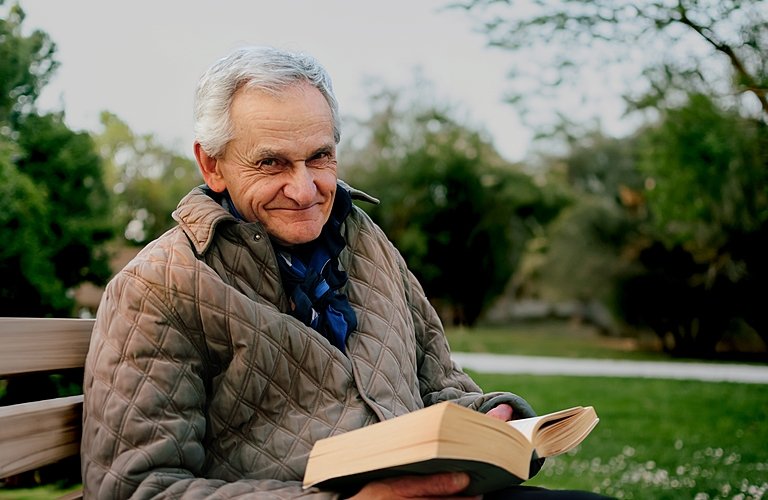192 Sloane Street, London SW1X 9QX

The Life-Changing Benefits of Brain Injury Recovery Care Homes
Brain injury is a life-altering event that can have profound effects on an individual's physical, cognitive, and emotional well-being. For many people who have experienced a brain injury, the road to recovery can be long..
What is a brain injury recovery care home?
A brain injury recovery care home is a specialised residency designed to provide comprehensive care and support for individuals recovering from brain injuries. These homes offer medical care, rehabilitation services, and personalised support tailored to meet the individual needs of each resident. Unlike traditional care homes or hospitals, brain injury recovery care homes focus specifically on the complex needs of those with acquired brain injuries, whether from trauma, stroke, tumour, or other causes.
How do brain injury recovery care homes differ from other care settings?
Brain injury recovery care homes stand apart from other care settings in several key ways. Firstly, they employ a multidisciplinary team of professionals who specialise in brain injury rehabilitation. This team typically includes neurologists, physiotherapists, occupational therapists, speech and language therapists, psychologists, and specialist nurses. The staff-to-resident ratio is often higher than in standard care homes, allowing for more intensive and personalised care. Secondly, these homes are equipped with specialised facilities and equipment designed to support brain injury rehabilitation. This might include state-of-the-art physiotherapy gyms, cognitive rehabilitation suites, and assistive technology to aid in daily living activities.
What services do brain injury recovery care homes provide?
Brain injury recovery care homes offer a wide range of services to support residents in their recovery journey. These typically include:
Medical care and monitoring
Registered nurses and care assistants provide round-the-clock medical care, medication management, and monitoring of residents' health status.
Physical rehabilitation
Physiotherapists work with residents to improve mobility, strength, and coordination through tailored exercise programmes.
Occupational therapy
Occupational therapists help residents relearn or develop new skills for daily living activities, such as dressing, cooking, or using a computer.
Speech and language therapy
For residents with communication difficulties, speech and language therapists provide support to improve speech, language comprehension, and alternative communication methods.
Cognitive rehabilitation
Psychologists and neuropsychologists work with residents to improve cognitive functions such as memory, attention, and problem-solving skills.
Emotional and behavioural support
Counselling and behavioural management strategies are offered to help residents cope with the emotional impact of their injury and any resulting behavioural changes.
Social and recreational activities
Organised activities and outings help residents maintain social connections and engage in meaningful leisure pursuits.
Nutritional support
Dietitians ensure that residents receive appropriate nutrition to support their recovery and overall health.
Family support and education
Many homes offer support and education for families to help them understand their loved one's condition and how best to support their recovery.
Why is specialised care important for brain injury recovery?
Specialised care is crucial for brain injury recovery because every brain injury is unique, and its effects can be complex and far-reaching. A one-size-fits-all approach to care is simply not effective when it comes to brain injury rehabilitation. The brain's plasticity - its ability to reorganise and form new neural connections - means that with the right support and stimulation, significant recovery is possible even long after the initial injury. Moreover, brain injury can affect every aspect of a person's life - from physical abilities to cognitive function, emotional regulation, and social interactions. Specialised care homes are equipped to address all these areas comprehensively, providing a holistic approach to rehabilitation that considers the whole person, not just their physical symptoms.
How do brain injury recovery care homes support long-term rehabilitation?
Brain injury recovery is often a long-term process, and recovery care homes are designed to support this journey over an extended period. They do this in several ways:
Structured rehabilitation programmes
Care homes develop individualised care plans that set out clear goals and milestones for each resident's recovery. These plans are regularly reviewed and adjusted as the resident progresses.
Gradual increase in independence
As residents improve, they are encouraged to take on more responsibilities and make more decisions for themselves, always with support available when needed.
Real-world skill practice
Many homes have facilities that mimic real-world environments, such as kitchens or gardens, where residents can practice skills in a safe setting.
Community integration
As part of the rehabilitation process, residents are often supported to gradually reintegrate into the wider community, perhaps through supervised outings or volunteer work.
Ongoing assessment
Regular assessments help track progress and identify areas where additional support might be needed.
Transition support
When residents are ready to move on, care homes often provide transition support to ensure a smooth and successful move.
What role do families play in brain injury recovery care homes?
Families play a crucial role in the recovery process, and good brain injury recovery care homes recognise this. They often encourage family involvement in several ways:
- Regular updates and communication: Families are kept informed about their loved one's progress and any changes to their care plan.
- Involvement in care planning: Family members are often invited to participate in care planning meetings, offering valuable insights into the resident's pre-injury life and preferences.
- Education and training: Many homes offer education sessions for families to help them understand brain injury and how best to support their loved one.
- Visiting and participation: Families are usually encouraged to visit regularly and may be invited to participate in therapy sessions or activities.
- Emotional support: Some homes offer counselling or support groups for family members to help them cope with the emotional impact of their loved one's injury.
How can KYN support your post-surgery recovery?
At KYN, we understand that the path to recovery after surgery can be as delicate as it is crucial. Our post-surgery care is designed to provide an unparalleled level of support, combining expert medical attention with a warm, nurturing environment. KYN's approach to post-surgery care is rooted in our commitment to personalised, holistic support. We recognise that every surgery is unique, and so is every individual's journey to recovery. Our team of highly skilled professionals works closely with each resident and their family to develop a bespoke care plan that addresses not just their physical needs, but also their emotional and social wellbeing.
Reach out today
To learn more about KYN's post-surgery care or to arrange a visit to one of our care homes, please don't hesitate to contact us. Our dedicated team is here to answer your questions and guide you through the process of finding the right care solution for your post-operative needs.

Join our next Open Day
Please provide your contact details below.
If you are interested in working at KYN, please kindly visit the Careers page. The Open Days listed above are for potential residents and their friends and families, not for recruitment.
Thank you
Thank you for your interest in KYN. We will be in touch with you very shortly.
If you require any assistance in the meantime, please email enquiries@kyn.co.uk or call +44 (0) 20 3535 1923.